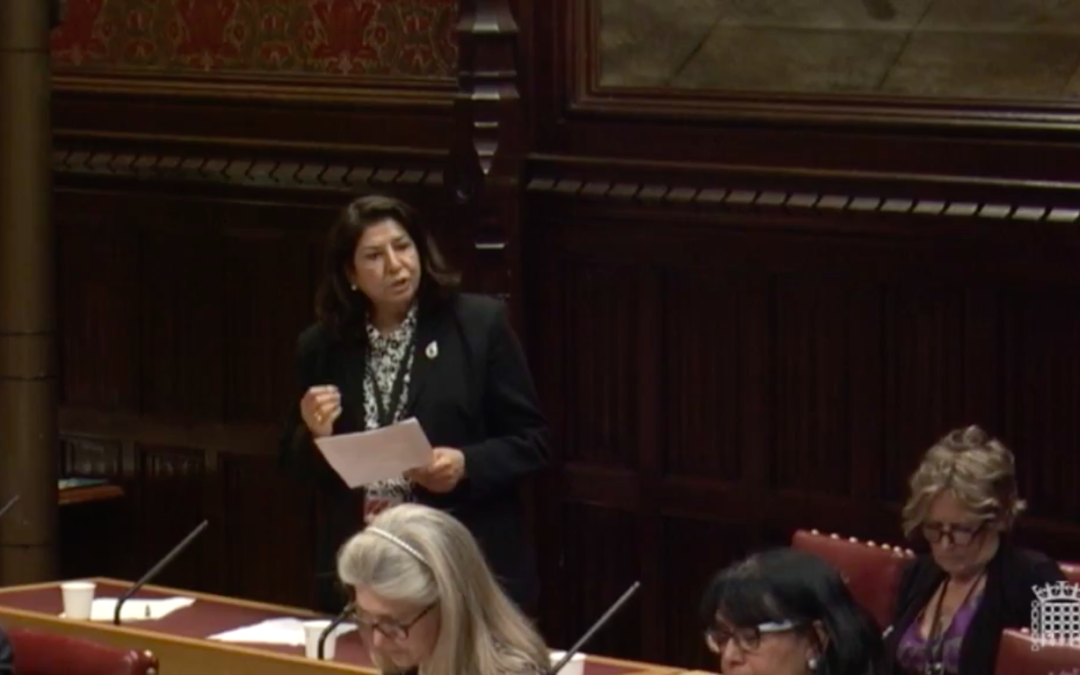In a Lords debate on the Sustainable Development Goals (SDGs), Baroness Manzoor, one of the APPG’s co-chairs, gave a speech outlining how nutrition underpins the SDG agenda as a whole. Using DfID’s Child Development Grant Programme as a case study, Baroness Manzoor demonstrated how investing in nutrition can transform the life chances of whole communities.
“Let us take the case of Fatima Babanne as an example,” Baroness Manzoor said. “Fatima is from a remote and fragile part of northern Nigeria. She has three children and another on the way. With limited local employment opportunities, she struggles to afford the healthy diet that she and her family need.
“Following an assessment, Fatima has enrolled on to DfID’s child development grant programme, which gives her a monthly cash income of 4,000 Nigerian naira—approximately £8—and a place on an education course about health and nutrition. Fatima uses her grant to buy healthy food and saves a small amount each month to start a millet-grinding business, which now generates 10,000 naira—£21—profit per month.
“As a result of DfID’s small intervention, Fatima has been economically empowered and her children will develop healthy immune systems, so vaccines and other health measures will be as effective as possible. Good health will improve these children’s chances of getting a good education and gaining meaningful employment as adults. This in turn will strengthen the Nigerian economy, promote stability and help the country become a valued trading partner and ally with Britain on the global stage”.
Baroness Manzoor went on to make three recommendations, “which have nutrition at their core but would improve the impact of UK aid overall”. Her first recommendation echoed a point made by David Linden in the Commons in the morning that DfID should invest ambitiously at all upcoming health financing moments between now and the end of 2020.
Her second point was about better integrating nutrition across DfID’s brief, pointing out the myriad of interventions required to meet nutrition targets: “food and agricultural systems and climate resilience programmes are all needed to ensure that nutritious food can grow and reach the people who need it. Education programmes about nutrition are important so that people are aware of what constitutes a diverse, healthy diet and economic growth programmes are important so that people can afford that diet”.
She concluded by encouraging the Government to take steps to “improve global collaboration and country ownership of nutrition,” pointing out that the World Bank estimates that “an additional $7 billion per year is needed to meet global targets on stunting and wasting. The UK cannot plug this alone—it should not seek to—but it can encourage other Governments, particularly those with high burdens of malnutrition, to do more.”
In response, the minster, Baroness Sugg, said in her concluding remarks that “nutrition underpins many of the SDGs. It is one of our best buys at DfID and it remains an important focus for us. It is a foundation for inclusive development, underpinning about 12 of the 17 SDGs, but the challenge to prevent malnutrition is getting much greater, not least because of climate change”.
Video highlights from the debate are available on the APPG Twitter.
A written record of the debate is available on Hansard.

